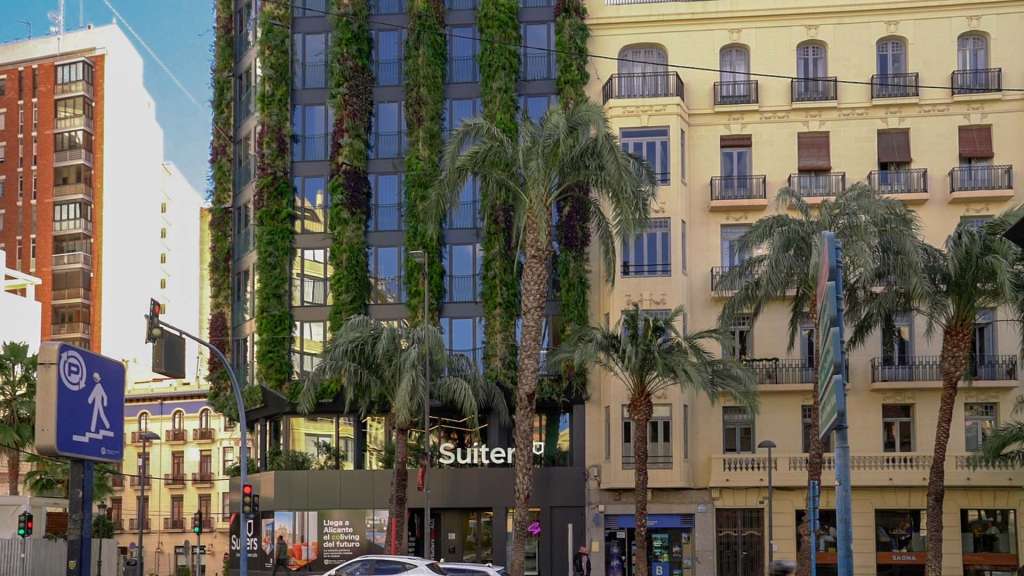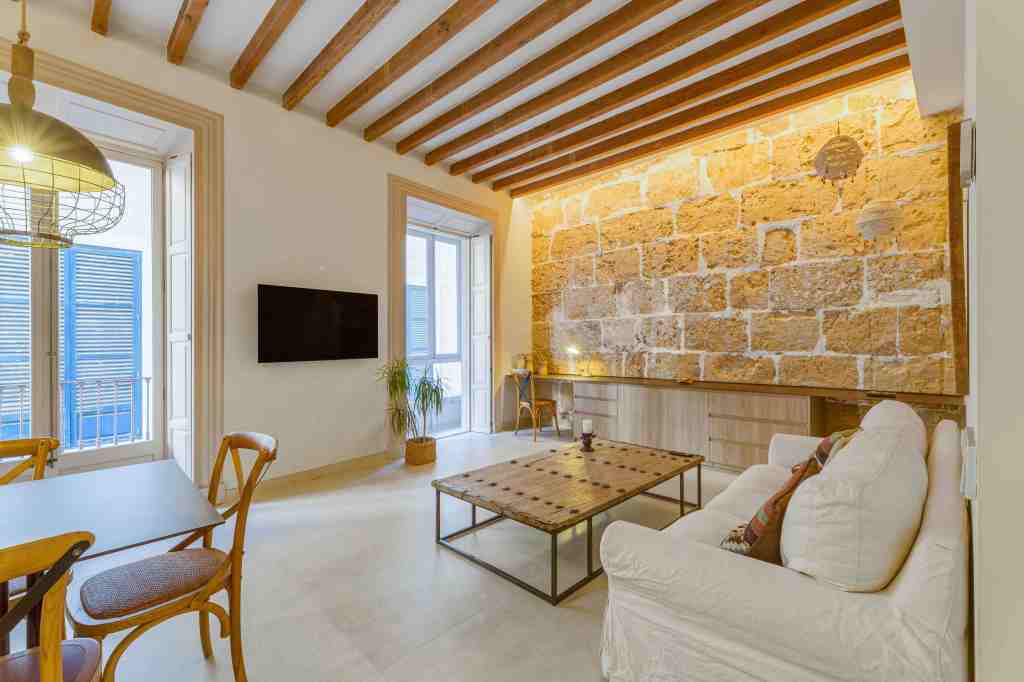The biggest single driver of last year’s property boom was the surge in working from home. For many, the commute went from daily chore to occasional concern, enabling them to move to areas that previously seemed beyond reach, from the Cotswolds to Cornwall.
But others have gone further still – swapping ‘work from home’ for ‘work from anywhere’. These digital nomads typically ditch the nine-to-five or find flexible employers to enable them to decamp to sunnier climes in the greyest months of the year. And during a winter of high energy bills and soaring living costs at home, the trend has been growing. For the estimated four million solo freelancers in the UK and the quarter of the labour force hybrid-working, ‘workations’ are in demand – assuming you are free from schooling and family ties. ‘I Airbnb-ed my flat in Peckham to fund my workation in the Alps and Thailand this winter,’ says Rob, the child-free owner of a small business.
Demand for short-term rentals in Europe’s top 50 cities grew by more than a quarter in 2022 compared with the previous year, according to analyst AirDNA. ‘Some of the out-of-season demand in these markets is definitely influenced by digital nomads and other remote workers taking a bit more flexibility to travel when it’s cheaper and stay longer,’ says the company’s Madeleine Parkin.
‘Living on an island has slowed my pace of life… I now walk a dog on long lunch breaks and spend afternoons working from botanical gardens’
Among the new tribe of nomadic workers is Toby Feldman, 25, who swapped north London for the Portuguese city of Porto, before moving on to Ponta Delgada on the volcanic archipelago of the Azores. Working for software start-up Infraspeak, he relishes the flexibility: ‘Living on an island has immediately slowed down my pace of life,’ he says. ‘I now walk a dog on long lunch breaks and spend afternoons working from botanical gardens.’
The lower cost of living in Portugal helps makes it a particularly popular option for the UK’s flexible workers – along with the fact that English is widely spoken in the cities. Toby pays €240 (£212) a month in rent plus €15 (£13) for bills in his shared house. The scope for travel and adventure on the doorstep after a day at the laptop is also part of the allure – whether canyon hikes, canoeing, surfing or paddleboarding. Co-working spaces in the city cost from $13 a day (£10.50).
Last year the Portuguese government launched a one-year digital nomad visa to allow non-EU nationals to stay for more than 90 days. There’s an income requirement (four times the Portuguese minimum wage: around €2,820, or £2,490, per month) and you need to have healthcare insurance. Applications are made through the Portuguese consulates in the UK.
In Porto – popular due to lower prices than Lisbon – a newly converted port warehouse on the banks of the Douro is opening in May as The Rebello, a high-end apart-hotel with restaurants and rooftop bar – ideal for a working holiday. The industrial loft-style apartments are designed for short- or long-term stays.

Analysing 11 countries for travel costs, local prices, accessibility, health and safety, weather and remote working capabilities, the metasearch site Kayak has put Portugal at the top, followed by Spain and Romania. Cities tend to be particularly popular due to the availability of high-speed internet access.
In Britain there has long been an appetite for the Spanish life (Brits still make up the biggest group of the country’s foreign property buyers), so perhaps it’s no surprise that Spain’s coastal cities are also drawing in vibrant communities of nomads – particularly those that are more affordable than Barcelona, such as Valencia, Alicante, Seville and Malaga. The Spanish government has just introduced a remote working visa, which requires a minimum income of around €28,794 (£25,430) a year.
Loneliness can be a downside of nomadic life, but as well as co-working spaces Spain has a growing number of co-living schemes – B&Bs or apartments with attached workspaces. In Alicante, Suiters, a development of 49 apartments, is the first of several of its brand planned for Spanish cities. Prices start from €750 (£662) a month for a new one-bedroom apartment, including cleaning, gym and workspaces, and there’s already a diverse international group of residents.

The cultural hub of the Balearics, Palma de Mallorca, is also popular – with the Tramuntana mountains close to hand for hiking and biking at weekends. It tends to be more expensive than the mainland cities, although a spacious apartment in the Old Town with balconies costs €2,000 (£1,759) a month to rent – less than the average flat in Hackney.

The fast-growing list of other countries offering digital nomad visas includes Antigua, Bermuda, Anguilla, Greece, Croatia, Malta, Costa Rica, Dubai, Mauritius and Montenegro. Remote workers need to be aware that they will become liable for tax if they stay for more than 183 days in many countries – and of course British nationals must not overstay their 90 days in 180 without a visa in the European Union.
Some visas offer attractive tax rates for residents, or exempt you from paying tax locally, such as Barbados’s Welcome Stamp (minimum earnings: USD $50,000 per year). Not surprisingly, it’s seen enthusiastic take-up – though having your ‘office’ with a view of swaying palms and the Caribbean sea surely tests the self-motivation of even the most dedicated digital nomads.







Comments